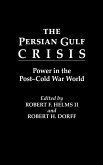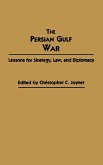This book deals extensively with Iraq and Saddam Hussein--his rise to power, his mastery of Iraqi statecraft, his pan-Arab proclivities and his two Gulf wars: the first against Iran and the second against the U.S.-led multinational coalition in 1990-1991. Israeli sources, as well as materials gathered during a trip to Turkey and the Kurdish refugee areas in northern Iraq, provide additional perspective for the author and his analysis. The book portrays a multidimensional Saddam Hussein: good and bad, strategic and human. It throws light on the reasons the U.S. went to war against Saddam, and presents an in-depth analysis of the United States' policies, which at one time supported Iraq's cause, in the Gulf region. A valuable feature of the book is its detailed discussion of the psychology of Saddam, of the Arabs, the Iranians, the Israelis, and the American public before, during, and after the Gulf War. Rezun's conclusions challenge generally accepted views that lay the blame for the war on Saddam Hussein. Although Saddam is a cruel and rapacious demagogue, U.S. policymakers are to blame for having supported Saddam for so long. The author also rejects the view that General Norman Schwartzkopf was a great hero of the last war. Contrary to general opinion, Schwartzkopf conducted a no-risk operation into which Saddam Hussein was caught because of his miscalculation of U.S. intentions. Critical of U.S. policies, Rezun finds them naive and short-sighted. Although disapproving of U.S. policies during the war, Rezun praises the support and sustenance given by the Bush administration to the Kurds in the final hours of the Gulf War. This book is addressed to generalists and academic specialists, and students of Middle East politics.
Hinweis: Dieser Artikel kann nur an eine deutsche Lieferadresse ausgeliefert werden.
Hinweis: Dieser Artikel kann nur an eine deutsche Lieferadresse ausgeliefert werden.








